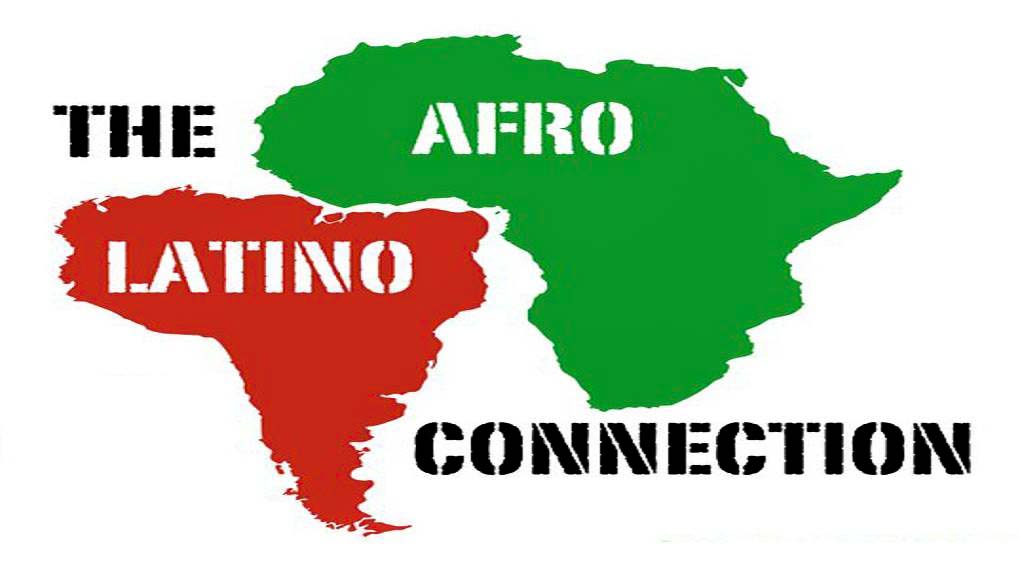
On Thursday, April 7, Ajua Campos and Ujamaa sponsored the event “Blackness in Latinidad” to explore the complexity of Afro-Latinx identity. The dialogue also focused on anti-black sentiment in the Latinx community. The discussion was facilitated by the Student Activities and Leadership Development Assistant Director Bulaong Ramiz ’11.
To begin the event, Aleyda Robles ’18 requested that the attendees keep the discussion respectful. She then played two videos on Afro-Latinx identity to set the tone for the discussion.
Before the discussion began, Naomi Oyakhilome ’16 asked the organizers to define a few terms that were mentioned in the video.
“Latina/Latinx is more of a term to encompass all of Latin America despite language,” Oyakhilome said. “Whereas ‘Hispanic’ takes into account the Latin-American countries that were colonized by the Spanish.”
Xavier Cornejo ’18 further spoke to this term.
“Latino/Latinx is a term that comes from the people themselves rather than the colonizers,” Cornejo said.
Ramiz opened up the room for discussion. Katherine Puntiel ’19 expressed her thoughts on self-identity.
“I think everything is individual-based,” Puntiel said. “Of course you’re constantly questioned…. It’s up to you to remind yourself of your identity.”
Christian Nunez ’16 challenged this with two questions.
“Who exactly gets to call themselves Afro-Latino?” Nunez said. “How do I interact with blackness in a way that won’t be read as problematic?”
Cornejo agreed with Nunez and shared how this affected him personally.
“I haven’t been told about my black ancestry,” Cornejo said. “I don’t know if that’s merely by omission or if that’s just lack of the ancestry.”
Oyakhilome then posed a question regarding the need to be able to trace ancestry in order to claim blackness. Robles then responded to the question.
“I think it depends,” Robles said. “I don’t identify as black because I don’t have the black experience.”
Nunez pushed back on that by asking who was allowed to claim the black experience.
“What does a black person look like?” Nunez said. “It’s a spectrum, where does that start and where does that end?”
Darian Sanders ’17 fielded the question by adding another level of complexity to the discussion.
“It’s a double-voice discourse,” Sanders said. “It’s not only about how people identify themselves, but how other people identify you as well.”
Ramiz then encouraged the attendees to shift the tone of the conversation.
“We have this habit of getting very cerebral in our conversations and having very academic discourse,” Ramiz said. “I’m going to encourage you all to think about speaking about your personal experiences… .This is your opportunity to do what you can’t do inside the classroom.”
Puntiel described her experience growing up as an Afro-Latina and the way it impacted her idea of identity.
“Growing up, I was told I’m not Hispanic,” she said. “I don’t speak Spanish, and I don’t look Hispanic.”
Kenny Navedo ’18 noted the diversity of physical attributes among Puerto Ricans, which seemed to contradict the idea of what “looks” Hispanic.
“If you go to Puerto Rico, no one looks the same,” Navedo said.
In response, Robles said what she believes is the underlying problem.
“The way I see internalized racism [is that] a big part of it comes from colorism,” she said.
Ramiz then asked the group what the standards were for claiming a certain identity.
“At what point do we get to say someone can or cannot identify with a particular group or experience?” Ramiz said.
Hailey Broughton-Jones ’18 highlighted a piece she felt was missing from the dialogue on race and identity politics.
“I think what frustrates me is when we don’t talk about privileges,” Broughton-Jones said. “In identifying as something larger than yourself, you’re also partaking in systems that created that identity.”
Ramiz concluded the talk with a few final thoughts.
“I want us to think about the experience of our families or friends who didn’t go to Wesleyan,” Ramiz said. “[As in,] thinking about what language and what experience they don’t have.”
After the talk, Robles explained why she felt this event was important.
“I feel like coming from a strictly Latinx community, this was a discussion we never really had,” Robles said. “Coming to Wesleyan, I learned a lot about intersectionality.”
Robles also shared how this event was helping her to create community on campus in saying that one of her biggest goals was to create a coalition among different student of color and affinity groups.
Ramiz further expressed her enthusiasm for discussions like these and why she thinks they are important to have on a continual basis.
“This is a topic that is near and dear to my heart and something that I struggled with as a child,” Ramiz said. “It’s always nice to be in a community with other people who either identify with or are exploring what it means to be Afro-Latinx.”


Leave a Reply